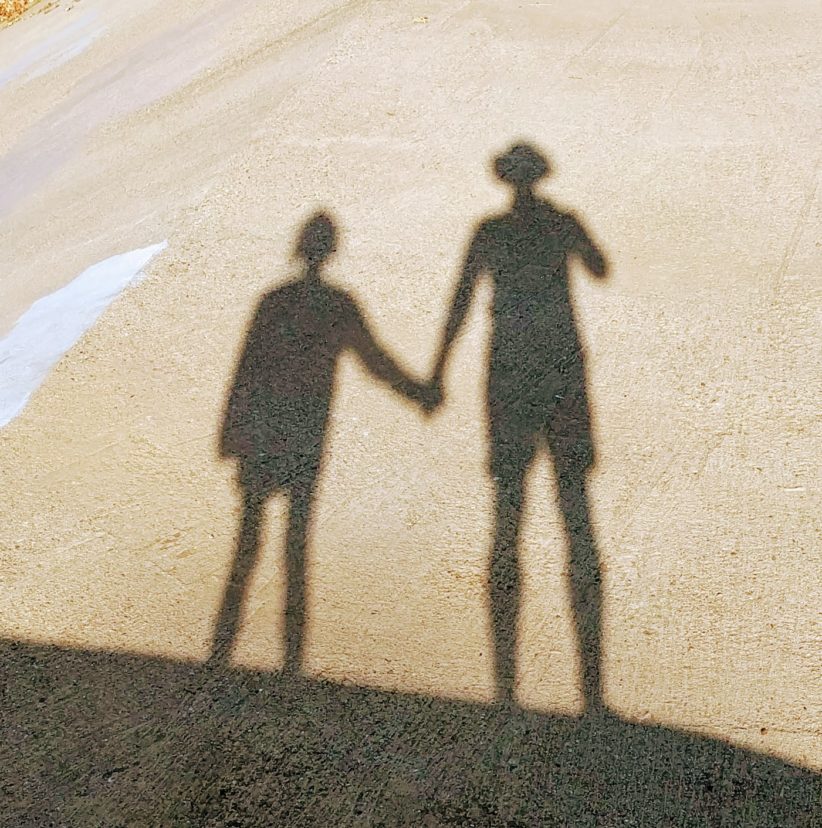Growing up with immigrant parents, you find that certain “old country” practices your folks learned as second nature don’t always translate so well in the new country.
Some concepts that would be perfectly acceptable in the home country were a little off here in the U.S. When my great-grandmother died while my siblings and I were away at summer camp, my parents decided to postpone telling us until we returned, so as not to ruin our special camper experience. I was an irritable thirteen year old at the time, and I was convinced that they had violated my right to contemporaneous grieving. I argued passionately to my parents that they had no right to withhold this type of information. Dad listened patiently, then dryly observed, “The half hour you just spent berating us, Soviet kids spent mastering physics. This is why the Russians are beating us.”
Others are fodder for enduring family inside jokes. When I graduated college, my dad wiped a tear from his eyes, held me firmly by the shoulders, and loudly announced , “Seeing you get your diploma, I am like a chicken with its feathers ruffled.” Me too, dad, me too.We all have certain parenting techniques we deliberately modify (or drop altogether), and others we groan in recognition of having unwittingly adopted straight from our parents’ handbook. My parents learned in their upbringing that children were delicate beings to be shielded from the harsh vulgarity of the real world. As a consequence, we were “protected” from learning about money. We did not spend a lot of it, but when we needed cash for a lunch outing with a friend or a special school item, my dad would hand us a $20 bill and we’d reliably bring him the change. (In their defense, my parents might claim that they raised us well since, unlike many of our peers, nothing we ever thought to do cost over $20).
One consequence of living in a carefully cushioned fantasy world of my parents’ making is that as a teenage driver, I never learned about essential car maintenance. I mean basic stuff, like the need for periodic oil changes. One hot California summer I cracked the engine block on the family station wagon because I was unaware that coolant needed to be checked and replaced on a regular basis.
It was on the heels of this automotive misadventure that I returned home one sunny California afternoon during a break from freshman year of college to find dad reading Newsweek in his easy chair, with my sister watching TV nearby. We exchanged a few pleasantries, after which dad inquired how the car was running. Now that he mentioned it, it seemed to make a new humming noise for a few seconds when I started it up.
Raising his eyebrows, he followed me out to the car to demonstrate. Smelling blood, my younger sister trailed us out to the driveway.
“Son, when was the last time you exchanged the air in your tires?”
“Huh?”
Sis chimed in, “I bet he’s never exchanged the air in his tires!”
I turned every shade of red as my dad started in on a sobering lecture about personal responsibility, until a couple of minutes into his speech he and my sister locked eyes and burst out laughing.
To this day, that story stings as much as it amuses (dad certainly relishes retelling it). I’m slightly less ignorant of car maintenance. It took a bit longer to learn the basics of personal finance, in part because the lean medical student years don’t leave as many $20 bills lying around as dad did for me to spend during my adolescence. I’ve resolved that my kids will never be in a position of weakness when it comes to knowledge about personal finance, and we routinely talk about and demonstrate how they can put their money to work for them.
The shielding traditions of my forebears, while well-meaning and culturally sanctioned, will end with me. My hope is that a tradition of early financial independence will emerge to replace it and guide my children toward a responsible and self-directed future, so that I, too, will someday look upon them like a chicken with its feathers ruffled.

